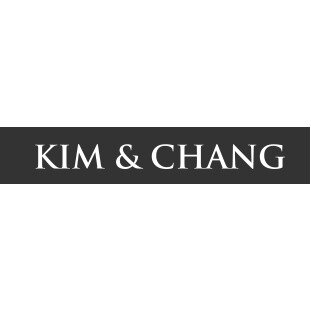Best ESG Advisory & Compliance Lawyers in South Korea
Share your needs with us, get contacted by law firms.
Free. Takes 2 min.
Or refine your search by selecting a city:
List of the best lawyers in South Korea
About ESG Advisory & Compliance Law in South Korea
Environmental, Social, and Governance (ESG) Advisory & Compliance has gained significant attention in South Korea in recent years. Driven by global trends and local initiatives, businesses in South Korea are increasingly expected to integrate ESG factors into their operations and reporting. The regulatory environment is evolving quickly, requiring companies to be vigilant in complying with both domestic laws and international standards. ESG Advisory & Compliance encompasses legal guidance and strategic support for companies aiming to meet regulatory requirements in areas such as environmental protection, responsible business conduct, governance standards, and transparent reporting.
Why You May Need a Lawyer
Hiring a lawyer for ESG Advisory & Compliance is essential in several scenarios. Common reasons include:
- Understanding complex and frequently-changing ESG regulations
- Assisting with ESG disclosures and reporting obligations
- Designing and implementing corporate ESG programs
- Responding to regulatory investigations or audits related to ESG matters
- Drafting or revising company policies in accordance with new laws
- Navigating mergers, acquisitions, or investments with ESG implications
- Managing risks related to non-compliance or ESG-related litigation
- Addressing supply chain due diligence requirements
Given the potential risks and reputational impacts of non-compliance, legal advice helps ensure your organization operates responsibly and in line with evolving legal expectations.
Local Laws Overview
South Korea’s ESG legal landscape is shaped by both national law and global standards. Some key aspects include:
- Mandatory ESG Reporting: The Korean Financial Services Commission (FSC) is phasing in mandatory ESG disclosures for listed companies, starting with the largest firms from 2025. These disclosures must address environmental impact, social responsibility initiatives, and governance practices.
- Environmental Law: Stringent regulations apply to areas such as waste management, carbon emissions, and resource efficiency, aligned with national climate goals.
- Corporate Governance: There are strict rules concerning board diversity, independence, stakeholder engagement, anti-corruption, and transparency.
- Social Standards: Labor rights, equality, health and safety, and supply chain practices are under increasing scrutiny, with new regulations governing due diligence and worker welfare.
- International Influence: South Korea’s ESG framework is influenced by the United Nations Sustainable Development Goals, OECD Guidelines, and other international norms, so multinational businesses must also comply with cross-border requirements.
Staying informed about national and international developments is crucial for compliance and strong ESG performance.
Frequently Asked Questions
What is ESG and why is it important in South Korea?
ESG stands for Environmental, Social, and Governance. In South Korea, focusing on ESG is essential due to evolving regulations, investor expectations, and the need to stay competitive globally. Emphasizing ESG helps companies attract investment, build reputation, and minimize legal risks.
Are ESG disclosures mandatory in South Korea?
ESG disclosures are being phased in as mandatory for large companies listed on the Korea Exchange, with full implementation expected by 2030. Smaller firms may still face stakeholder pressure to report voluntarily.
What are the main ESG regulations affecting businesses in South Korea?
Key regulations include the Capital Markets Act (concerning disclosures), the Environmental Policy Act, labor and anti-discrimination laws, and pending legislation on supply chain due diligence and sustainable finance.
What information must be included in ESG reports?
ESG reports in South Korea should typically cover greenhouse gas emissions, environmental initiatives, workplace policies, governance practices, diversity, risk management, and ethical conduct. The specific requirements depend on regulations and industry best practices.
What are the penalties for failing to comply with ESG regulations?
Non-compliance can result in fines, public disclosure of violations, administrative orders, potential lawsuits, and significant reputational damage. The government is expected to strengthen enforcement mechanisms as regulations mature.
Does South Korea follow any international ESG standards?
Yes, South Korea’s regulations are informed by international frameworks such as the GRI Standards, SASB, TCFD, UN SDGs, and OECD Guidelines. Compliance with these can enhance global credibility.
Are there ESG requirements for foreign companies operating in South Korea?
Foreign companies operating locally are subject to most of the same ESG requirements as Korean firms, especially if they are publicly listed or have a significant market presence.
How can a lawyer assist with ESG compliance?
A lawyer can help interpret regulations, design compliance programs, draft or review policies, prepare disclosures, conduct training, respond to investigations, and advise on risk management strategies.
What industries are most affected by ESG regulations in South Korea?
Industries with significant environmental or social impacts, such as manufacturing, energy, chemicals, finance, and IT, are heavily affected. However, ESG standards are expanding to touch all sectors.
How often do ESG laws and regulations change in South Korea?
ESG laws and guidance are evolving rapidly, with new policies and updates introduced frequently as the government and regulators respond to global developments and local priorities.
Additional Resources
For more information on ESG Advisory & Compliance in South Korea, consult the following:
- Financial Services Commission (FSC): Responsible for ESG reporting regulations and financial sector compliance.
- Korea Exchange (KRX): Provides guidelines for listed companies on disclosures and ESG-related practices.
- Ministry of Environment: Offers information on environmental regulations and national climate policies.
- Korea Corporate Governance Service (KCGS): Conducts research and assessment on ESG criteria, publishes guidelines and evaluations.
- Legal professional bodies: Such as the Korean Bar Association that can help connect you with specialist ESG lawyers.
- NGOs and Industry Groups: Entities such as the Korea Sustainability Investing Forum promote best practices and offer educational materials on ESG topics.
Next Steps
If you need legal assistance with ESG Advisory & Compliance in South Korea, consider the following actions:
- Identify your specific needs, such as compliance reviews, policy development, or assistance with reporting obligations.
- Engage a law firm or specialist lawyer with experience in ESG matters and a strong understanding of local and international regulations.
- Prepare documentation outlining your business practices and current ESG initiatives to facilitate a thorough legal review.
- Schedule a consultation to discuss your compliance status, risk exposure, and action plan for ongoing compliance.
- Stay proactive by keeping updated on regulatory changes and participating in industry forums or training sessions.
Legal guidance is invaluable in navigating the complex and rapidly-shifting ESG landscape in South Korea, ensuring your business not only complies with the law but also demonstrates responsible and sustainable management practices.
Lawzana helps you find the best lawyers and law firms in South Korea through a curated and pre-screened list of qualified legal professionals. Our platform offers rankings and detailed profiles of attorneys and law firms, allowing you to compare based on practice areas, including ESG Advisory & Compliance, experience, and client feedback.
Each profile includes a description of the firm's areas of practice, client reviews, team members and partners, year of establishment, spoken languages, office locations, contact information, social media presence, and any published articles or resources. Most firms on our platform speak English and are experienced in both local and international legal matters.
Get a quote from top-rated law firms in South Korea — quickly, securely, and without unnecessary hassle.
Disclaimer:
The information provided on this page is for general informational purposes only and does not constitute legal advice. While we strive to ensure the accuracy and relevance of the content, legal information may change over time, and interpretations of the law can vary. You should always consult with a qualified legal professional for advice specific to your situation.
We disclaim all liability for actions taken or not taken based on the content of this page. If you believe any information is incorrect or outdated, please contact us, and we will review and update it where appropriate.
Browse esg advisory & compliance law firms by city in South Korea
Refine your search by selecting a city.
















